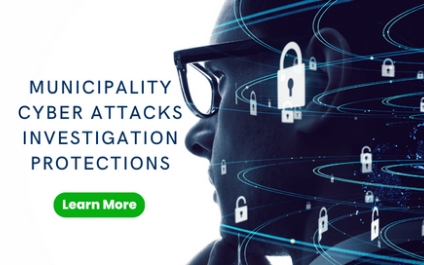A British Columbia municipality recently shared they were under cyber attack over three weeks ago. According to the website IT world Canada, the Sunshine Coast Regional District had their computer servers and website turned offline and only went back online 16 hours later. During this time, criminals were trying to gain access to information on their servers. An investigation has started since then, but they still haven’t determined if any personal data were compromised.
Cyber Security Alerts
Training employees is one of the keys to protect a business, that's why the British Columbia government published on their website a reminder about Spoofing Emails. Here are some tips on how to avoid becoming a victim:
- Carefully inspect all emails, even if it appears to be coming from someone you know.
- Be vigilant and safe whenever you see links or attachments in your emails.
- If you suspect that spam emails are being spoofed to look like they are from someone you know, contact that person through a different channel (phone, in-person, lync) and let them know.
- If you suspect that someone is spoofing emails to look like they are from you, check in with your contacts and see if they have received anything suspicious.
In addition to the tips, they also included a note explaining that they are aware of malicious pop-ups appearing on B.C. government devices asking the user to call a number for assistance and giving access to bad actors as they pretend to be a help desk service fixing the problem.
Tech Support Scams
What happened in British Columbia could have happened anywhere. With the number of cyber attacks increasing more people also need to grow their knowledge on cyber security as well. Knowing that, many companies have been sharing important content about this matter. Microsoft, for example, published an article about how to protect yourself from tech support scams, “the scammers use scare tactics to trick you into unnecessary technical support services to supposedly fix device or software problems that don't exist.”
Here is what you need to keep in mind:
- Microsoft does not send unsolicited email messages or make unsolicited phone calls to request personal or financial information, or to provide technical support to fix your computer. If you didn't ask us to, we won't call you to offer support.
- If a pop-up or error message appears with a phone number, don’t call the number. Error and warning messages from Microsoft never include a phone number.
- Microsoft will never ask that you pay for support in the form of cryptocurrency like Bitcoin, or gift cards.
- Download software only from official Microsoft partner websites or the Microsoft Store. Be wary of downloading software from third-party sites, as some of them might have been modified without the author’s knowledge to bundle malware and other threats.
- Use Microsoft Edge when browsing the internet. It blocks known support scam sites using Microsoft Defender SmartScreen. Also, Microsoft Edge can stop pop-up dialog loops used by these attackers.
Cyber Security Awareness Month
October is almost here. It’s crucial that we learn and teach everything about cyber security, so no one puts themselves or others at risk. Don’t forget that we are all CONNECTED through many platforms, where hackers can find all our INFORMATION.
Here are two steps for you to get off on the right foot:
The first step is to start with the basics, such as creating strong passwords, placing multi-factor authentication, updating your software, and backing up your data.
The second step is to click here and contact us if you need help or have questions.



